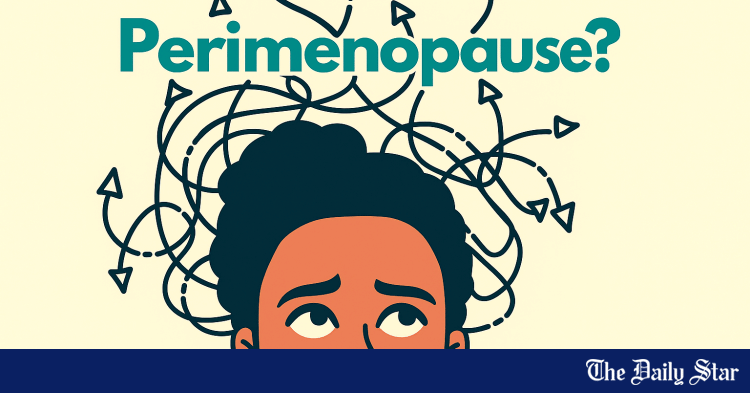The forties may have gained a reputation for being the age when bad things happen to a woman’s body, but there is no magic to this number. Every woman goes through these physiological changes in their own time. The 40s is, however, the age when perimenopause is most likely to hit women, and it is good to know what changes to expect and how to combat them.
Perimenopause can be loosely defined as the prep time that a female body takes to transition into menopause, and it is here that hormones such as oestrogen and progesterone start to destabilise. The most notable changes a woman faces physically at this time are weight gain, a deteriorating skin texture, and exhaustion. Doctors have noted that this particular weight gain is not just visible on the scale — it settles distinctly on the hips, giving the body a more rotund look.

The loss of oestrogen and progesterone is directly responsible for saggy and more dehydrated skin, fine lines and the loss of skin suppleness due to decreasing collagen.
Dr Kazi Azmiri Hoque, RMO at the Obs Gyn Department of Meditech General Hospital, mentions, “Women can sometimes lose the softness of their face, and even the litheness of their build during this process, and gain some facial hair.”
Women hitting this age also often complain of losing hair volume, but this is not common to everyone.
One of the most important jobs of oestrogen is to keep young joints greased — women losing this hormone in their 40s, therefore, often complain of joint stiffness, bone and back pain over time, especially if they have a BMI on the higher side.
Women also lose muscle mass and strength by up to 15 per cent during this time, increasing the risk of fractures and osteoporosis. Other effects of hitting pre-menopause include vision changes and dry eyes, a weak pelvic floor, especially for women who have given birth, sleep challenges, fatigue and consequent brain fog.
These, however, are only the tip of the proverbial iceberg of perimenopause. Oestrogen provides a buffer against cardiovascular ageing and even insulin sensitivity. A decrease in the hormone could therefore render women more vulnerable to cardiovascular risks and strokes, and increase the risks of Type 2 diabetes.
Wild fluctuations of hormones before the last period may cause irregular periods, hot flashes and night sweats, vaginal dryness, and wild mood swings in women.
“One of the reasons women dread menopause is because they feel that this would mean the end of sexual desire and physical love, but this is far from the truth,” shares Azmiri. “In fact, libido remains unchanged and sexual relations can continue well into menopause.”
Vaginal dryness may be an issue during this time, but lubricants can help make things better. While these are all intimidating factors to consider, not every woman goes through all these factors, and definitely not all at once.
“Oftentimes, women find themselves dealing with teenage children in their 40s, or ailing parents,” confides Azmiri. “These are stressors which may manifest themselves in the form of aches and pains. Most doctors group these ailments under menopause, making it a villainous stage in women’s lives.”
However, there are several ways in which a woman can combat the negative effects of perimenopause in her 40s. She can choose to switch to a healthy lifestyle, incorporating a balanced diet, for instance.
A dietician will be especially beneficial here, as they can chalk out a phytoestrogen-rich diet including foods like flaxseeds, soy, and lentils, balance blood sugar levels, and order a reduction in nicotine, caffeine, and alcoholic beverages.
Women can also take up regular exercise, leaving behind a sedentary way of life, and practice stress management techniques such as yoga or meditation. A good sleep hygiene, such as a solid eight-hour shut-eye and a no-screens rule an hour before bedtime, can help counter fatigue and brain fog.
More than anything else, having a good sense of awareness of what is going on in your body means that half the battle is already won. Knowing and expecting, and to some extent perhaps even combating the signs of perimenopause, can make your 40s much less daunting, allowing you to embrace this milestone age as a special number, not a dreaded one.

